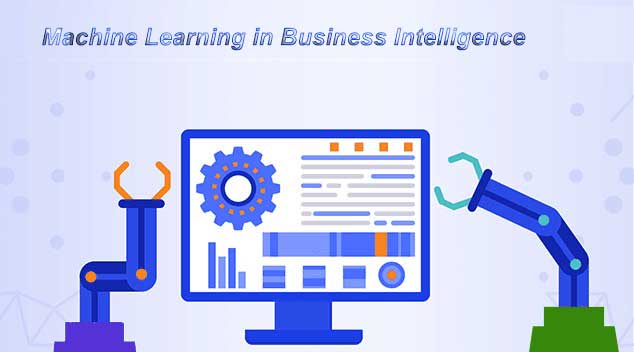In the current fast-paced business landscape, the integration of AI has become a pivotal factor for firms working hard to maintain a market edge. As organizations deal with an increasingly complex array of challenges, harnessing the power of AI provides a distinct opportunity to simplify operations, enhance decision-making, and encourage innovation. Firms that adopt this transformative technology are not just adjusting; they are setting new benchmarks for productivity and performance, unlocking potential that was once unthinkable.
The advantages of using AI in business are vast and varied, impacting everything from client relations to logistics. By utilizing data-driven insights and automating repetitive tasks, companies can optimize their workflows and focus their efforts on strategic initiatives. As continues to develop, it opens the door for significant advancements, allowing businesses to anticipate market trends and respond to customer needs with remarkable agility. This article will discuss how AI is revolutionizing the business landscape and providing organizations the competitive edge they need to thrive in the tech-driven age.

Transforming Business Processes
The adoption of AI into business operations has changed the way companies function. By streamlining mundane tasks, AI enables companies to redirect their efforts towards higher-level initiatives. This change not only improves productivity but also reduces the likelihood of human error, ensuring that operations function seamlessly and efficiently. As a consequence, companies can operate at a quicker pace, achieving greater output without sacrificing quality.
Moreover, AI's ability to analyze vast quantities of data in instantaneous provides knowledge that were previously unattainable. Organizations can utilize data-driven insights to predict trends, streamline supply ch ai ns, and make strategic decisions that promote growth. With these resources at their disposal, organizations can adapt swiftly to market changes, giving them a significant advantage over competitors who rely on conventional decision-making processes.
In addition, AI enables enhanced communication and cooperation within teams. Intelligent systems can optimize workflows and enhance interaction among team members, regardless of spatial barriers. By fostering a more integrated environment, organizations can cultivate innovation and creativity, enabling employees to add value more efficiently to the organization’s missions. This disruptive impact of AI on operations ultimately leads to a more adaptive and robust business model.
Boosting Consumer Satisfaction
AI has changed the way organizations engage with their consumers, facilitating a more customized and adaptive experience. By analyzing data from customer communications, AI systems can detect likes and habits, allowing businesses to tailor their offerings. This degree of personalization can lead to increased client satisfaction and loyalty, as clients feel understood.
Moreover, artificial intelligence-driven chatbots provide instant support, answering queries and fixing problems around the clock. This not only enhances reply times but also allocates employees to concentrate on more complex tasks. By providing swift assistance, companies can enhance their image and create a favorable perception that strikes a chord with consumers.
Ultimately, artificial intelligence allows businesses to anticipate customer expectations before they arise. Trend analysis can reveal patterns and suggest proactive steps, such as replenishing popular items or presenting focused deals. This proactive method not only meets customer expectations but also places companies to stay ahead of the market, ensuring long-term growth.
Driving Innovation
AI is a powerful catalyst for advancement within businesses. By processing large amounts of data and spotting trends that would be challenging for people to detect, AI can drive the creation of innovative solutions, services, and processes. This ability not only boosts the existing services of a company but also opens up avenues for entirely fresh business prospects. The more quickly and more effectively businesses can innovate, the more advantageous they become in their respective fields.
Moreover, AI empowers businesses to automate repetitive assignments, letting employees to focus on creative and strategic projects. This shift in attention encourages a climate of creativity as employees are motivated to consider creatively and develop new ideas. With AI handling mundane tasks, organizations can reallocate resources towards research and development, resulting to transformative innovations that can set them apart from competitors.
Moreover, AI encourages collaboration between various teams and units by delivering information and data that can be shared and leveraged across the company. This connection encourages a more cohesive approach to creativity, as varied viewpoints come together to address challenges and develop distinct solutions. As a result, businesses that readily adopt AI not only enhance their functional performance but also foster an environment where innovation flourishes.
